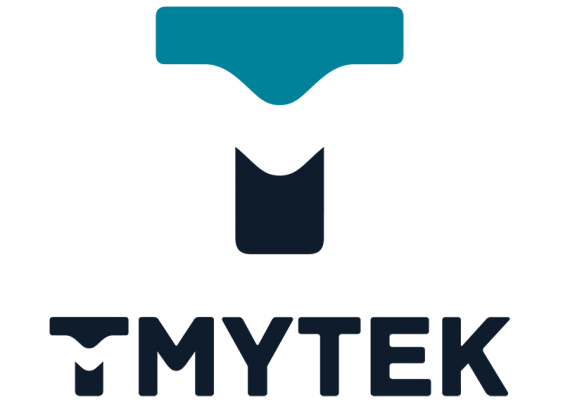Tutorial1: Towards Resilient Federated Learning in CyberEdge Networks: Attacks, Defenses, and Opportunities

Prof. Kai Li
University of Cambridge, UK
CyberEdge networks envision a significant advancement in the integration and processing of data at the edge of mobile computing systems, enabling fast, private, and resilient decision-making. For instance, these networks can provide real-time monitoring and analysis of patient data in smart healthcare systems or Metaverse applications, enhancing personalized care and timely interventions. By decentralizing data processing, CyberEdge networks reduce latency and improve the reliability of critical health applications. In recent years, federated learning has been developed to enable the training of machine learning models across multiple decentralized devices in CyberEdge networks without transferring raw data to a central server, thereby protecting data privacy. In particular, federated learning ensures that sensitive information, such as patient health records or user data from augmented reality (AR)/virtual reality (VR) equipments, remains localized on individual devices. By only sharing model updates rather than the actual data, federated learning minimizes the risk of data breaches and unauthorized access. In this tutorial, we will present a comprehensive review of the existing literature on adversarial attacks and security threats to federated learning and the defense models. Moreover, we will investigate model feature-oriented poisoning attacks against federated learning, where the attacker requires no knowledge of the training data and achieves both effectiveness and undetectability. We will also discuss shield defense models against the model feature-oriented poisoning attacks on federated learning. In addition, enhancing defenses against poisoning attacks in federated learning is crucial to maintain the integrity and trustworthiness of machine learning models, especially in sensitive applications, such as healthcare and Metaverse systems. Future opportunities lie in developing robust detection and mitigation techniques, such as anomaly detection, secure aggregation, and trusted execution environments, to ensure resilient federated learning in CyberEdge networks.
Biography:Kai Li received the B.E. degree from Shandong University, China, in 2009, the M.S. degree from The Hong Kong University of Science and Technology, Hong Kong, in 2010, and the Ph.D. degree in computer science from The University of New South Wales, Sydney, NSW, Australia, in 2014. Currently, he is a Visiting Research Scholar with the School of Electrical Engineering and Computer Science, TU Berlin, Germany, and a Senior Research Scientist with the CISTER Research Centre, Porto, Portugal. He is also a CMU-Portugal Research Fellow, jointly supported by Carnegie Mellon University (CMU), Pittsburgh, PA, USA, and the Foundation for Science and Technology (FCT), Lisbon, Portugal. From 2023 to 2024, he was a Visiting Research Scientist with the Division of Electrical Engineering, Department of Engineering, University of Cambridge, UK. In 2022, he was a Visiting Research Scholar with the CyLab Security and Privacy Institute, CMU. Prior to this, he was a Post-Doctoral Research Fellow with the SUTD-MIT International Design Centre, Singapore University of Technology and Design, Singapore, from 2014 to 2016. He has also held positions as a Visiting Research Assistant with the ICT Centre, CSIRO, Brisbane, QLD, Australia, from 2012 to 2013, and a full-time Research Assistant with the Mobile Technologies Centre, The Chinese University of Hong Kong, Hong Kong, from 2010 to 2011. He has been an Associate Editor of journals, such as Internet of Things (Elsevier) since 2024, Nature Computer Science (Springer) since 2023, Computer Communications (Elsevier) and Ad Hoc Networks (Elsevier) since 2021, and IEEE ACCESS from 2018 to 2024.
Tutorial2: Innovations in Phased Array Antenna and RIS Technology for Network Enhancement in 5G Communications
TMYTEK is pioneering advancements in antenna technology for 5G/B5G and SATCOM, focusing on the development of Phased Array Antennas (PAA) solutions. Our approach includes revolutionizing mmWave RF front-end systems and introducing a comprehensive beamforming development kit, which significantly enhances the functionality and performance of our antenna offerings. A pivotal element of our research is the Dynamic Reconfigurable Intelligent Surfaces (RIS) technology, which represents a paradigm shift in 5G communications. By intelligently manipulating the wireless environment, the reflector and Dynamic RIS enhance signal quality and coverage, mitigating challenges such as interference and multipath propagation. Furthermore, our FR2 NextGen Wireless Education Kit provides an invaluable resource for hands-on learning and experimentation with antenna systems for attendants, facilitating rapid prototyping and algorithm testing. This integrated approach positions TMYTEK's antenna solutions at the forefront of next-generation 5G communications, enabling the development of adaptable platforms for a wide array of applications in the evolving landscape of 5G and 6G technologies.



.png)
